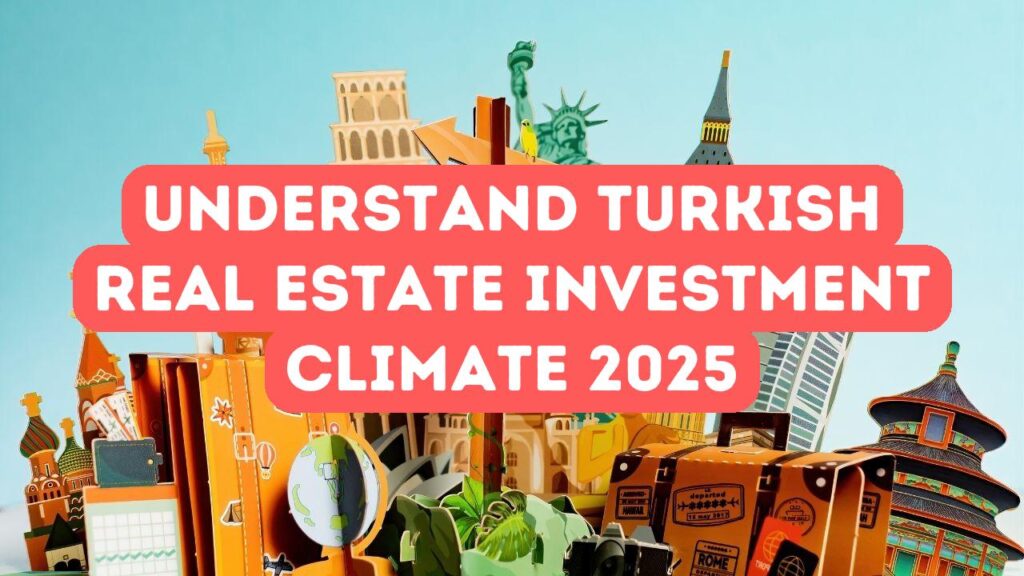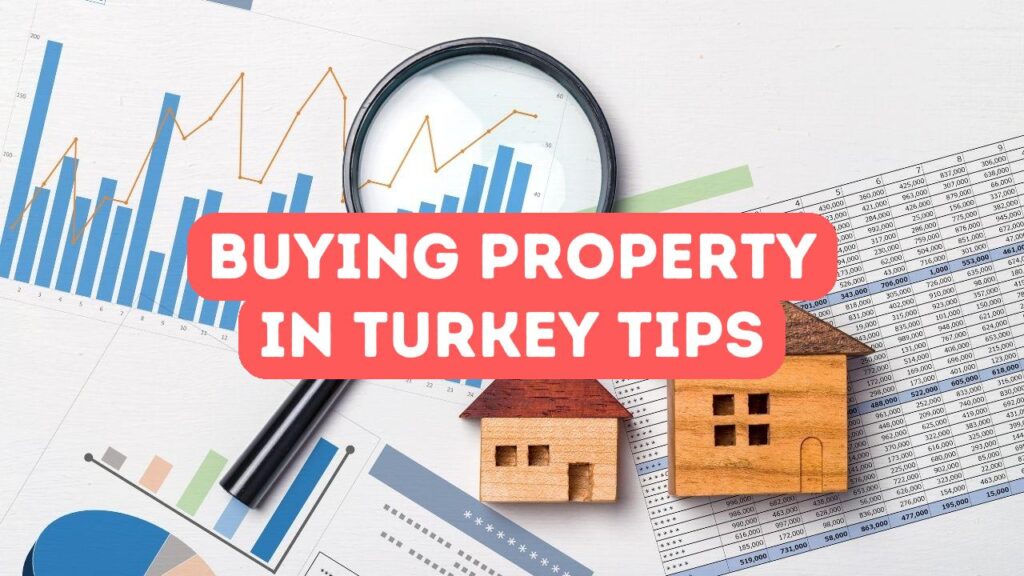Navigating the Turkish real estate investment landscape post-2025 requires keen insight and strategic planning. As the 2025 property market evolves, those investing in Turkey must understand its shifting dynamics. Why? Because the market is not stagnant. Real estate trends 2025 will reflect changes that could affect your decision-making process. The fluctuations are like a river’s current, sometimes calm and other times swift. If buying property in Turkey is on your agenda, paying attention to local policies, economic indicators, and regional developments is vital. Turkey, with its vibrant cities and picturesque landscapes, offers potential but requires a clear vision and decisive action. Missing out might mean watching opportunities drift away like leaves on a stream. By staying informed, you pave the way for more rewarding investments. Does navigating this evolving market sound challenging? It doesn’t have to be. Equip yourself with knowledge, and the Turkish real estate investment journey will be far more rewarding.
Analyzing Economic Trends Influencing Turkish Real Estate
Understanding the economic landscape is key when it comes to Turkish real estate investment. The 2025 property market will be shaped by economic indicators, much like a sculptor chipping away at stone to reveal hidden form. Inflation rates, for instance, impact the cost of buying property in Turkey, as do foreign exchange fluctuations which play like wild waves in the broader real estate trends 2025. As global markets adjust, investing in Turkey may become more enticing or more challenging. Keep an eye on the interplay between domestic growth and international investor interest. It’s a bit like balancing on a seesaw; shifts in one area can tilt the whole board. So, think beyond today and don’t let unforeseen economic changes throw a wrench in your strategy. With a solid grasp of these trends, investors can confidently navigate their path toward more fruitful ventures.
Shifts in global economics often cast ripples that reach the shores of Turkish real estate investment. The 2025 property market will undoubtedly witness compelling developments as it absorbs these changes. Picture a domino effect—turmoil in financial hubs worldwide can lead to unexpected opportunities or challenges in investing in Turkey. Key players like interest rates behave much like the steering wheel of a car, directing the course of buying property in Turkey. Does a shift in international trade policies affect the market? Absolutely. Real estate trends 2025 will hinge on such external forces. Think of it as trying to predict the weather of investments; some forecasts are clearer than others, but all need a seasoned eye. Stay ahead of the curve by keeping an ear to the ground for any rumblings in the economic landscape. This vigilance will allow investors to glide smoothly through the Turkish property scene.
In 2025, analyzing economic trends is crucial for Turkish real estate investment success. Picture yourself on a treasure hunt; understanding key indicators is like having a map to the hidden gems. Foreign investments play a pivotal role in shaping the 2025 property market. Fluctuating currencies, akin to unpredictable tides, can either bolster or undermine the appeal of investing in Turkey. For those buying property in Turkey, keeping tabs on Turkey’s GDP growth will be invaluable, as it influences the market’s health and signals favorable conditions. Furthermore, real estate trends 2025 will be shaped by Turkey’s evolving infrastructure plans. High-speed trains and new bridges could redefine value in certain regions. These developments aren’t just concrete and steel; they’re the arteries of Turkey’s booming real estate heart, pumping vitality into once-overlooked areas. By understanding these economic pulses, investors can dance through the market with confidence and a clear vision.
Key Legislative Changes Impacting Foreign Investments
Turkey’s legislative landscape for real estate investments has undergone significant shifts post-2025, shaping how foreign investors engage with the market. These changes act like gatekeepers, directing the flow of capital and interest. Why does this matter? Because knowing the new rules can turn potential pitfalls into pathways of opportunity for those investing in Turkey. Key updates include adjustments to property acquisition rights, stricter criteria for buying property in Turkey, and revised tax incentives aimed at bolstering foreign participation in the 2025 property market. Fail to grasp these nuances, and you might feel like you’re trying to fit a square peg in a round hole. By aligning your strategies with these legislative changes, you’ll navigate the real estate trends 2025 with greater ease, ensuring your ventures in Turkish real estate investment are primed for success amidst evolving regulations.
Understanding the key legislative changes impacting foreign investments is crucial for successfully navigating the Turkish real estate investment landscape. Post-2025, alterations in regulations could resemble shifting sands, leaving the unprepared investor in a quandary. For instance, changes in the criteria for buying property in Turkey may now dictate a sharper focus on compliance, prompting investors to stay abreast of updated policies. These adjustments play a pivotal role in shaping the real estate trends 2025, influencing the pace at which foreign capital enters the 2025 property market. Moreover, revised tax propositions serve as enticing carrots, aiming to boost interest in investing in Turkey. Missing these cues might be akin to leaving your umbrella at home on a rainy day—you’ll end up wet and regretful. Thus, embracing these legislative shifts as guiding stars will not only safeguard your ventures but will also illuminate the path to thriving within Turkey’s dynamic investment space.
Given the dynamic legislative environment, prospective investors must recognize how these key changes influence the Turkish real estate investment climate. After 2025, the rules surrounding property ownership and market entry have become significantly more stringent. This isn’t just a bump in the road; it’s a new path altogether. For those interested in buying property in Turkey, learning the new requirements is like acquiring a map before setting out on a journey—it’s essential. Staying updated on the evolving policies can reveal new avenues for foreign capital to flow smoothly into the 2025 property market. Moreover, understanding how these regulations intersect with real estate trends 2025 ensures that your investing in Turkey remains not only compliant but also lucrative. Don’t get caught in the shifting complexity unprepared; align with the legislative framework to ensure success in this vibrant market.
Future Prospects for Sustainable Property Development in Turkey
The future of Turkish real estate investment is intertwined with the rise of sustainable property development, an area with vast potential post-2025. As more investors prioritize eco-friendly projects, Turkey stands at the forefront, tailoring developments that align with real estate trends 2025. Investing in Turkey means embracing green innovation, which isn’t just a trend—it’s a necessity. Imagine modern constructions that harmonize with nature, reducing carbon footprints while enhancing living standards. The 2025 property market in Turkey is expected to thrive as eco-conscious buyers seek homes that offer both comfort and sustainability. Thus, when buying property in Turkey, it’s crucial to consider projects that embrace these sustainable practices. This focus on green development not only enriches the environment but also boosts market value, ensuring more significant returns. Are you ready? Embracing sustainability could be your key to unlocking long-term success in the Turkish real estate arena.
Turkey, with its commendable strides towards sustainability, is poised for a transformative future in the 2025 property market. Cities like Istanbul and Izmir are not just growing—they’re evolving. They represent future hubs where innovation meets tradition, creating a unique tapestry for investing in Turkey. As real estate trends 2025 shift towards sustainable practices, the emphasis will be on energy-efficient buildings and resource-conserving infrastructures. This isn’t just about aesthetics; it’s about adapting to a new era of real estate. When buying property in Turkey, the focus should be on such revolutionary designs, aiming to meet contemporary demands without compromising environmental integrity. Those ahead of the curve will find themselves in the driver’s seat, making strategic decisions in Turkish real estate investment that promise substantial profit margins. The real question is, will you be part of this forward-thinking group, smoothly cruising along the eco-friendly highways of tomorrow?
The outlook for Turkish real estate investment post-2025 centers around sustainable growth, making it an exciting time for forward-thinkers looking at the 2025 property market. As the nation continues to integrate sustainability into its urban fabric, opportunities in investing in Turkey are multiplying. Cities are reshaping themselves into beacons of eco-friendly living, where every square foot counts toward a healthier future. Real estate trends 2025 point towards innovative designs that embrace the latest in green technology, offering properties that are both luxury and eco-responsible. When buying property in Turkey, developers are increasingly focusing on buildings that prioritize energy efficiency and ecological balance. Such initiatives don’t merely address environmental concerns but also substantially increase asset value, presenting lucrative prospects for investors. So, is it time for you to capitalize on these emerging trends? By aligning with Turkey’s sustainable development push, you can position yourself at the forefront of a thriving real estate revolution.






